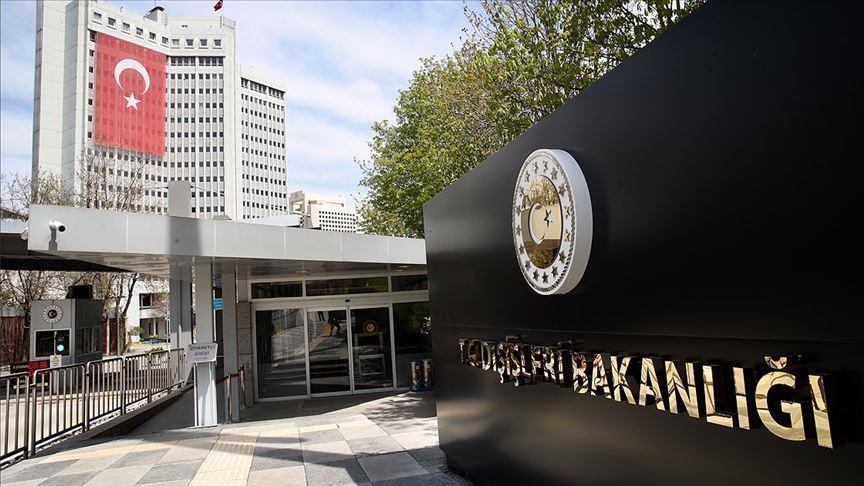
Turkey on June 17 condemned a Greek court's decision to sentence the elected mufti, or Muslim official, of the city of Xanthi to time in prison with a three-year deferment of the sentence.
A criminal court in the city of Thessaloniki sentenced Ahmet Mete to 15 months in prison for "disrupting public order by sowing public discord."
Under the judge’s decision, Mete will go to prison to fulfill his sentence if he commits a crime within the next three years.
Turkey’s Foreign Ministry in a statement described the decision as "another manifestation of the legal pressure and intimidation policies by Greece against the Western Thrace Turkish Minority's elected Muftis by their own will."
Citing previous European Court of Human Rights decisions against Greece on violating muftis’ activities in the country, the ministry said the legal proceedings carried out via "baseless accusations" against muftis aims to "prevent the aforementioned individuals from carrying out their religious and social duties freely."
Turkey further expressed hope for the "unfair decision" to be corrected in the later stages of the legal process.
"We invite Greece once again to put an end to its oppressive practices that violate the fundamental rights and freedoms of the Western Thrace Turkish Minority and its elected Muftis," it added.
A ministry statement also noted that Turkey will continue to support "the rights of the Western Thrace Turkish Minority, which are guaranteed by international agreements and conventions."
Xanthi (Iskece) is part of Greece’s Western Thrace region, which has a population of 150,000 Muslim Turks dating back centuries.
The election of muftis, or Islamic clerics, by Muslims in Greece is regulated by the 1913 Treaty of Athens, a Greek-Ottoman Empire pact which was implemented by Athens in 1920.
But in 1991, in violation of international law, Greece annulled its law regarding the 1913 treaty and unlawfully started to appoint the muftis itself.
The muftis appointed by the Greek state have since usurped local Muslims’ rights of jurisdiction on family and inheritance matters.
Most Muslim Turks in Western Thrace do not recognize muftis appointed by the Greek state and instead rightfully elect their muftis.
However, since 1991, the Greek state has refused to recognize elected muftis, and authorities have even put clerics on trial.
Turkey has long decried Greek violations of the rights of its Muslim and Turkish minority, from closing down mosques and letting historic mosques fall into disrepair to refusing to allow local groups to use the word “Turkish” in their name.
These measures violate the 1923 Treaty of Lausanne as well as European Court of Human Rights verdicts, making Greece a state that flouts the law, say Turkish officials.